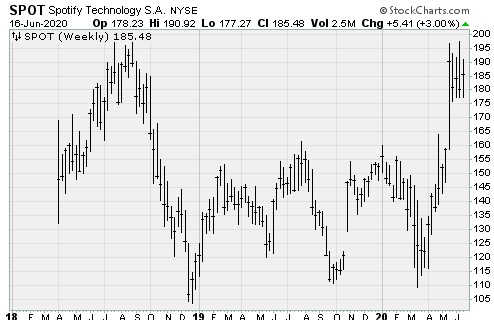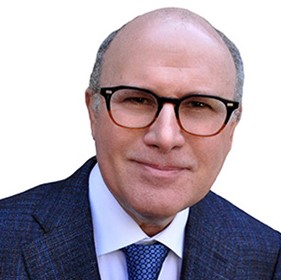The regulators are taking dead aim at big technology firms. The first strike may come as a surprise.
The European Commission announced Tuesday that Apple (Nasdaq: AAPL, Rated “C+”) is the subject of a new investigation stemming from alleged anticompetitive practices within their App Store policies.
This is a big deal for a certain Nordic application developer.
Ironically, the announcement comes only one day after Apple product managers made a big deal about the benefits of company stores. Based on a study from Analysis Group, an economic consulting firm, the App Store ecosystem was responsible for $519 billion in total billings for services and goods during 2019.
Apple executives claim the company’s cut was only applied to a mere $61 billion. The Cupertino, Calif.-based firm takes a share of gross sales for digital items offered for sale in its store. The commission can range from 15% for longer-term subscriptions, to 30% for games and productivity applications.
It’s a lucrative business that has been a constant source of criticism from developers.
The chief complaint has always been that Apple is taking too large a cut for simple access to iPhone, iPad and Mac users. And in some cases, Apple offers a competing product that is not subject to this so-called Apple tax.
While this has been an added challenge for competitors, it doesn’t mean that they aren’t knocking at the door.
Spotify (NYSE: SPOT, Rated “D”), for example, must compete head-to-head with Apple Music. The Swedish company offers the largest streaming music and podcast selection in the world. And with 130 million paid subscribers through the first quarter of 2020, it is also the most popular, according to data collected at Statista.
For comparison, Musically notes that Apple Music had 60 million paid subscribers in June, followed closely by Amazon Music with 55 million members.
However, winning business has been difficult. Spotify launched a formal complaint with the E.U. last June. In a prior blog post, Spotify CEO Daniel Ek complained that the App Store fees forced the company into the difficult position of either raising prices, or taking a margins hit.
Both outcomes, Ek claims, unfairly benefit Apple Music. He noted that the App Store policies created an unlevel playing field and deprived consumers of meaningful choice.
It’s a convincing argument, especially in light of Apple’s decision not to charge these fees for services such as Uber (NYSE: UBER, Rated “D-”).
There have been some concessions. During an interview with Bloomberg in May, Ek said he was encouraged that Apple is finally allowing system-level access to Siri, its digital assistant. The move allowed full voice integration with iPhone, Apple Watch and Apple TV.
Those developments, and the likelihood of fairer distribution in the App Store, is a big opportunity for Spotify. It would reset the scales on the one business vertical that has been weighing down the share price.
The other aspects of Spotify’s business are in great shape.
The digital transformation of music changed how artists, labels and distributors are paid. Record sales have been replaced by live performances, merchandise sales and license agreements with brands, advertisers and digital marketers. Top acts, like Taylor Swift, are making more than ever.
The country crossover sensation earned $266 million domestically in 2018 by playing gigs, hawking T-shirts and working with marketers, according to a recent story in Billboard.
The changing business of music makes legacy catalogs less valuable. For a long time, those pricey music collections kept Spotify unprofitable mainly because the record labels demanded 70% of all revenues.
Spotify negotiated new agreements in 2017 with its four largest music partners. Gross margins rose by seven percentage points, according to a research note from D.A. Davidson. And as the industry value chain shrinks further, Spotify plans to move aggressively to vertically integrate into concerts, merchandise, promotion and data analytics.
Almost a third of the music streamed on Spotify today is curated by its editorial team or algorithms.
Spotify shares trade at only 4.3 times sales. Given the prospect for exciting new businesses, this is cheap. The stock has risen 24% this year largely on the basis of better traction with podcasts, including a contract for the exclusive streaming rights to one of the world’s most popular podcasts, the Joe Rogan Experience.
The stock could easily trade to $310 during the next two years based on subscriber growth. Investors should consider buying shares into weakness because this should be an incredible opportunity.
Best wishes,
Jon D. Markman





